Shaunte Paul Oliver remembers exactly what caught her eye that day: an orange-and-cream brochure, prominently marked, “Strong Beginnings.”
That sounded like a good thing.
At any other point in her life, she might have walked right past that bulletin board inside the Baxter Community Center in Grand Rapids, without so much as a second look at that brochure.
But on that day five years ago, one conspicuous flier did its job. It grabbed her eye.
Or maybe it was the photo.
Oliver, 34, remembers: “It was a picture of a man and a woman and a baby, together.”
It seemed like something she might want. It tugged at her, at something deep in her belly, where she was growing a little girl.
“I’m older; it was overwhelming at that time,” Oliver said. “I didn’t have the family support I thought I’d have.”
She was no stranger to parenthood. At that time, in 2010, her two sons were ages 13 and 9. She certainly knew how to raise two boys, but she was nervous about raising a little girl.
She wanted her interactions with her daughter to be different than her experiences as a child.
“The relationship I had with my own mother wasn’t the relationship it should have been,” Oliver said. “I was scared of how I’d react to having a daughter in my life. I didn’t want to make the same mistakes; I didn’t want my daughter wondering or worrying. I wanted to make sure I taught her to be the best girl she can be.”
She wasn’t quite sure how to make it happen, but she was open to suggestions.
“I got to reading the flier,” she said. “It talked about how a mentor would come to your home. It said they had a program for families and African-American women who have children ages 2 and younger—and if you’re pregnant.”
“I figured let me call them and see what happens,” she said. “I’m glad I made that call.”
Infant mortality
One of the curious things about information: Once you’ve been exposed to it—a piece of data, a concept, a statistic, a historic truth—you can’t go back and un-see it. You can’t un-know it. You can’t un-ring the bell.
That’s a bit how it was with Oliver during her first meet-up with a Strong Beginnings employee. After an initial phone call in which she answered questions about her marital status, health care, employment status and such, she met with an agency employee who plugged her into a trove of resources.
In that first meeting, Oliver learned something about her Grand Rapids hometown. One of those things you can’t really un-learn.
In Kent County, black infants die at almost three times the rate of white infants. The most recent estimated data shows the black infant mortality rate in Kent County is about 13 deaths per 1,000 births; the white rate is about 5 deaths per 1,000 births. (And these numbers are much improved from the historical data.)
But it’s not just the mortality rate. Black infants are also more likely to be born at lower weights, leading to continuing problems as they grow.
All of this is saying quite a bit, considering the U.S. has one of the worst infant mortality rates in the developed world.
Given the wealth disparity and racial inequality in the U.S., it should come as no surprise that community leaders and researchers have determined the black community’s infant mortality rate has something to do with inequality and racism.
Quite a bit to do with it, in fact.
“The rock-bottom cause we see as being a cause of the disparity is racism,” said Peggy Vander Meulen, program director at Strong Beginnings.
Vander Meulen is careful in her choice of words. It’s not as though the white community tromps about openly discriminating against minorities throughout the country; it’s usually more subtle and systematic.
When it’s not overt, racism is institutional—it’s molecular, cooked right down into the subatomic components of everyday living, affecting all the trimmings of modern society: education, shelter, health care, employment, insurance, transportation, you name it.
“It’s many, many factors,” Vander Meulen said. “That’s a long, long conversation.”
Ultimately, it’s the sort of thing that keeps less-privileged folks from accessing high-dollar education, high-paying jobs, high-impact health care. It’s the sort of thing that results in African-American infants dying at three times the rate of white infants.
“That really opened my eyes,” Oliver said. “I wasn’t even aware of that. I’m thankful I am now.”
After partnering with Strong Beginnings, Oliver soon found herself scrutinizing things that, in past years, may not have given her much pause. The first two weeks of her daughter Alona’s life, for instance, she had fed her bottled formula, which only seemed to make the child colicky and inconsolable.
“I figured since she was already two-and-half-weeks old, she wouldn’t do breastfeeding,” Oliver said. “My Strong Beginnings worker said, ‘Do me a favor—try it one time.’”
“I’m telling you, as soon as I tried it, we were breastfeeding,” she said. “It was my Strong Beginnings worker who brought me literature about how it’s natural and it helps with her nutrition.”
Oliver said this was just one part of her growth in recent years, initiated largely through her involvement with Strong Beginnings and its many partner agencies.
“They made me feel like family,” Oliver said. “My Strong Beginnings worker went to doctor’s appointments with me, they helped me monitor the growth of the baby, everything.
“If you feel like you don’t have anyone to trust, no one you can call on, the Strong Beginnings worker is that person,” she said.
Healthy Start
Strong Beginnings is a federally funded Healthy Start program that works to improve maternal-child health and eliminate racial and ethnic disparities in birth outcomes. It’s a collaboration of eight agencies, including Spectrum Health.
Given the infant mortality rate experienced by the black community, maternal-infant health has been a central focus of the efforts put forth by Strong Beginnings and its partners since its inception in 2005.
Vander Meulen has been with this vanguard since Day 1. She’s well aware of the realities on the ground.
As such, she knows it’s not just about the infant mortality rate. There are innumerable working components when you’re trying to improve human health in underprivileged communities, and tenfold more when it involves protecting and growing delicate young lives.
It involves parenting, relationships, marriage, jobs, self-esteem, recreation, access to healthy food, clothing, spirituality, and on and on and on.
“I know that the focus is on the infant mortality piece,” Vander Meulen said, “but we’re really trying to frame it more in terms of the broader picture of improving maternal-child health.”
Denise Evans, project coordinator at the Strong Beginnings program, is responsible for outreach and the agency’s health equity programs and social justice education. She, too, is keenly attuned to the immense obstacles that can frustrate efforts to improve the lives of African-American mothers and their children and families.
Sociology, politics and economics are woven tight into this issue of health equity.
“When we talk about the fact that where people live affects their health, and the conditions in which they live, well, it’s shaped by the distribution of money and power and resources,” Evans said.
Want to improve human lives? It’s not just about “something,” but a quality version of that “something.”
“It’s not just about health, but quality health,” Evans said. “It’s not just education, but quality education. Not just a decent wage, but a living wage.”
“It’s about job security, availability of healthier food choices, transportation,” Evans said. “There are just so many other things. And all of these things play out and contribute to some of the health outcomes that we’re seeing.”
Jeremy Moore, the Spectrum Health Foundation and corporate relations director, said it is incumbent on residents of all backgrounds to examine the underpinnings of their community agencies and institutions, if they truly want to improve health equity.
You don’t have to look far to see the disparities in health outcomes—compare Caucasian communities to black or Latino communities. You can turn away your head like a barn owl, but the imbalances remain; they are unmistakable, undeniable.
The Centers for Disease Control and Prevention’s 2013 Health Disparities and Inequalities Report states on its opening page: “In the United States, whites have a longer healthy life expectancy than blacks.”
“You begin to ask: Well, why is that? Why really is that?” Moore said. “You have to explore all the other reasons that people give, everything ranging from issues of access, to personal experiences of racism, to systemic segregated racism.
“Our systems are built upon rules that were originated years and years and years ago, at a time when we were very segregated,” Moore said. “Is it possible that our systems now are geared to work against people of color?”
It’s evidenced in health outcomes, Moore said.
“It’s across every major area of well being, not just in infant mortality,” he said. “You can pretty much look at every measure of health and see disparities there.”
Strong Beginnings and its partners, including Spectrum Health, are working to shift those disparities in Kent County and Grand Rapids.
Community partners
If one thing has set Strong Beginnings apart, it’s the agency’s tone, Oliver said.
It’s a tone of respect, understanding and genuine empathy. That’s not the sort of treatment those in the black community have come to expect when they seek help from someone outside their family or their inner circle.
“The difference between Strong Beginnings is they’re mentors, confidants,” Oliver said. “They listened to my overall daily concerns, and they never made me feel like I was asking too much or asking something that I shouldn’t be asking.
“They want to form a partnership with you,” Oliver said. “They don’t just want to be a resource center and say, ‘Hey Shaunte, here’s some milk and stuff, check us out again later.’”
They’ve made her feel important enough to come back, time and again.
“They made me feel like my child was important to them as a whole,” she said. “They showed me how to respect myself as an African-American woman, how to present myself, handle myself in certain situations—meet and greets, etiquette, public speaking.”
She has since had a second daughter, Alonte Oliver, 1. Her first, Alona, is now 4 years old, and her sons are Deandre, 14, and Raekwon, 18.
“It’s basically a lifelong lesson that you’re being taught while you’re in the program,” Oliver said. “And I’m still involved.”
She’s now a co-facilitator of the breastfeeding program at Strong Beginnings and she has also involved her girls in a program called The Need to Become, where tutors visit her home to promote reading, books and scholastics.
“Strong Beginnings partnered me with them,” she said. “It gives that extra kick of education in the home with the child.”
Strong ending
More than once, Oliver pointed out that Strong Beginnings isn’t in the business of making excuses for people—rather, the agency informs and then empowers residents to get involved, to work within the framework of the system that’s there.
“(The agency) is growing and molding future African-American families, and minorities, guiding and coaching us into learning and understanding the opportunities that we truly do have out here,” Oliver said. “Once taught that, we have to utilize what we’re being taught.”
Oliver said she’s working on a business plan to create a child respite center in the community, primarily to give parents of autistic or special needs children a place to go for a break.
Her life is by no measure easy right now, but there are terrific bright spots.
Remember that photo she saw five years ago in the Baxter Community Center, the one with the smiling dad, mom and child?
She made that her own.
More than a year ago, she took a co-parenting class with the father of her girls, Alonzo Oliver, 41. They had earlier decided they didn’t want to marry.
“Before that class, I was a single parent,” she said. “We were living in separate homes. But we decided a year-and-a-half ago to take that parenting class.”
And then something happened: “It brought us closer together,” she said. “After that, we decided to get married.”
“It’s because of Strong Beginnings that we got married,” Oliver said.
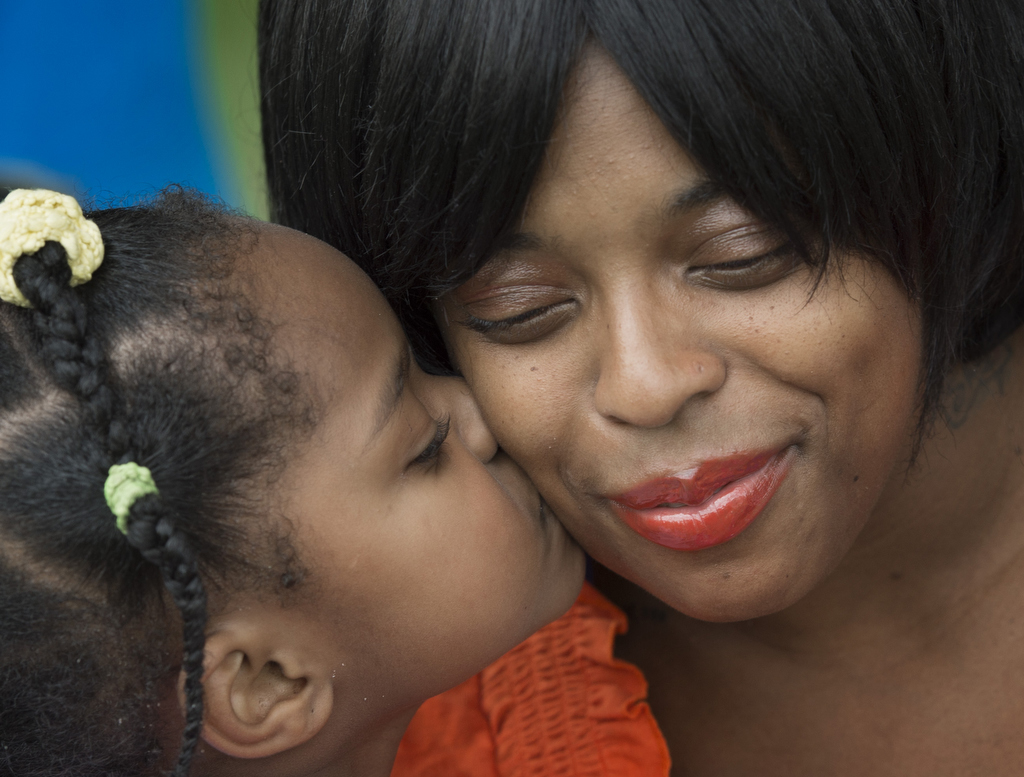
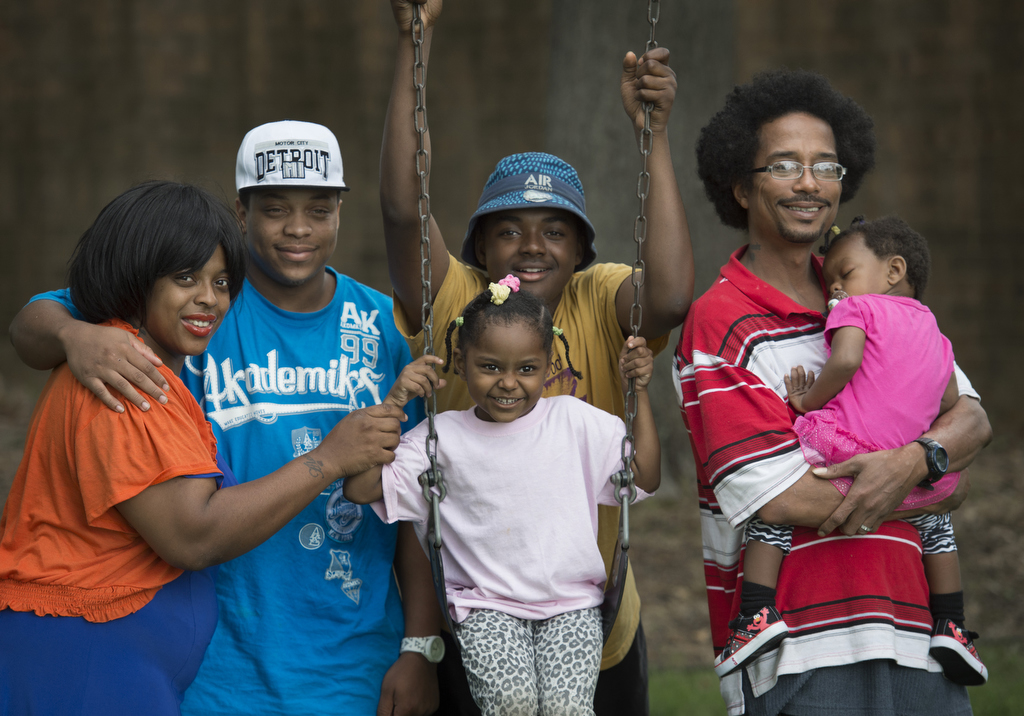
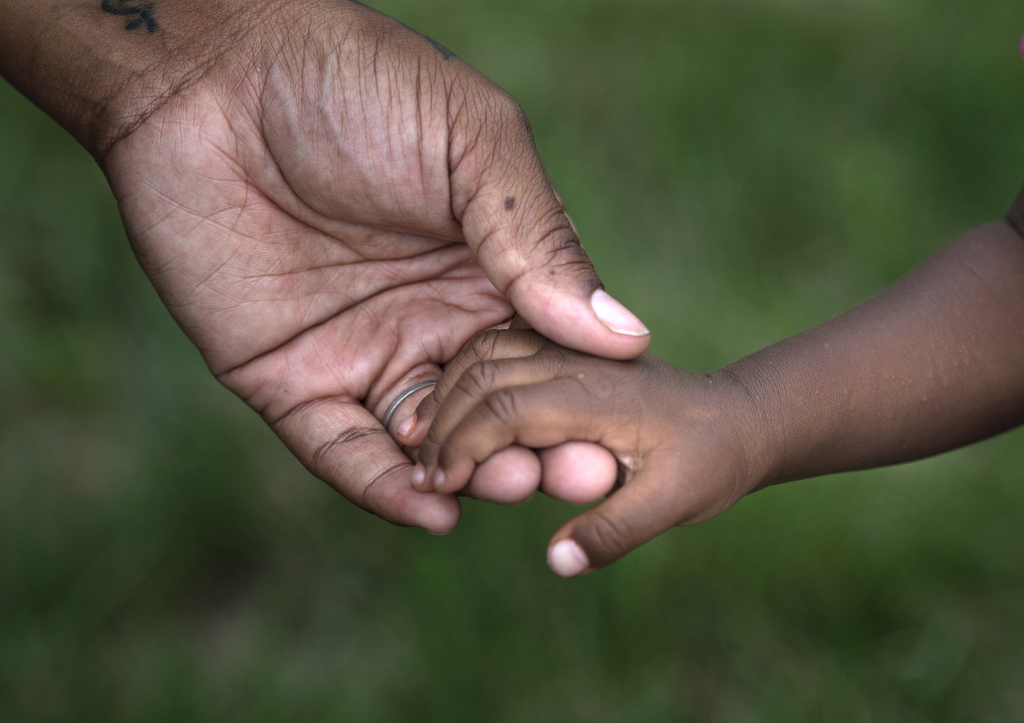
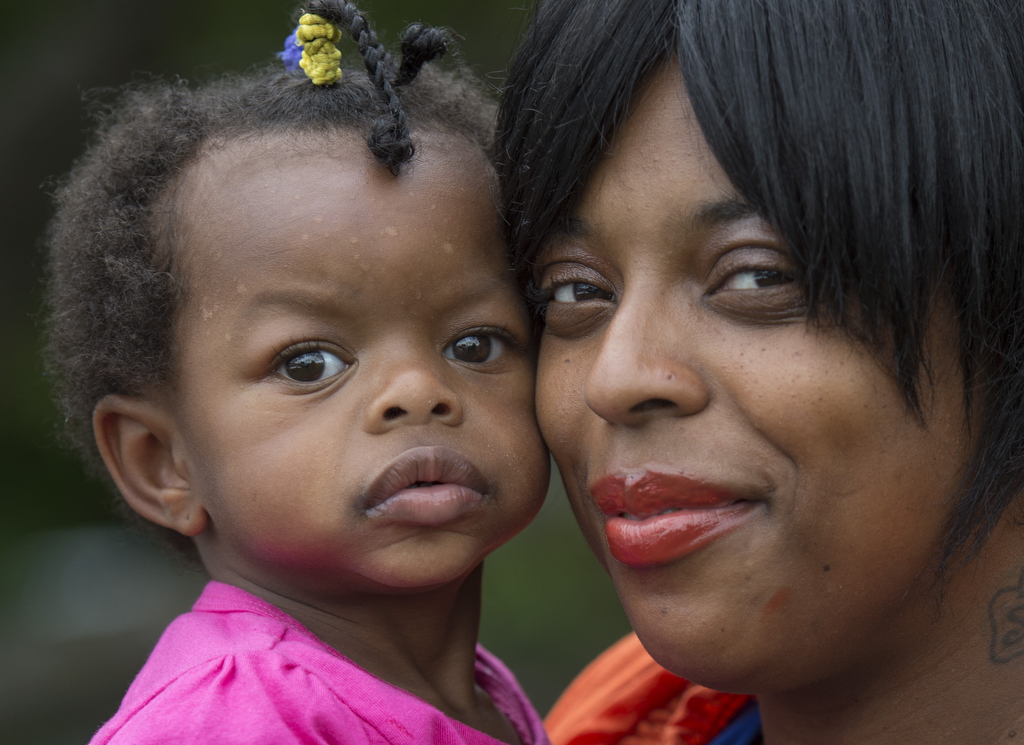
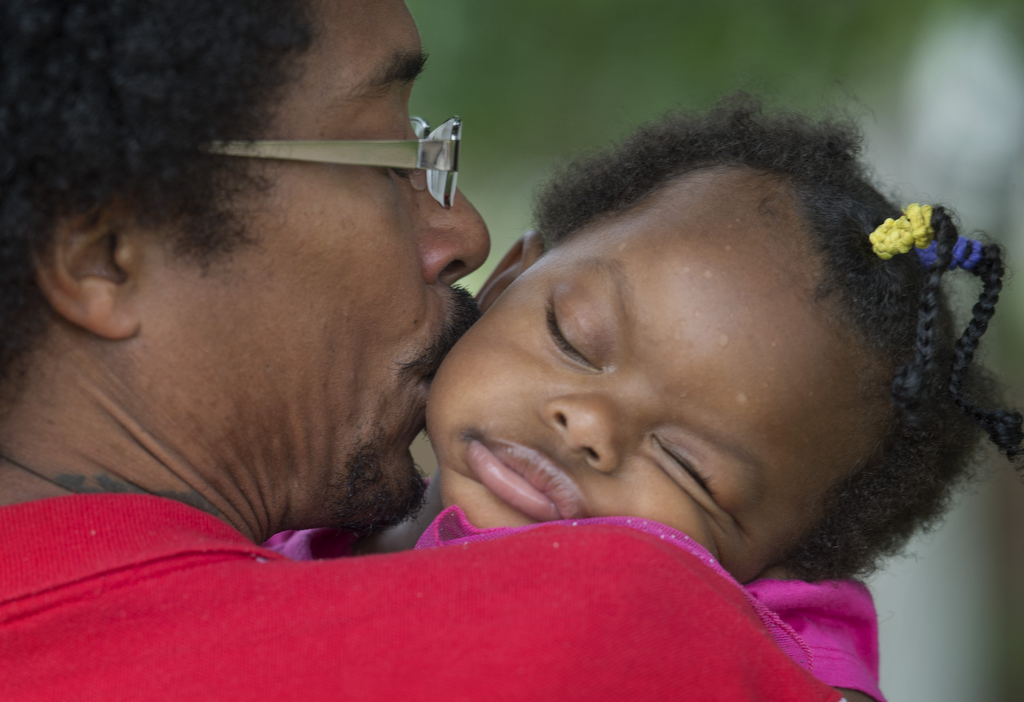
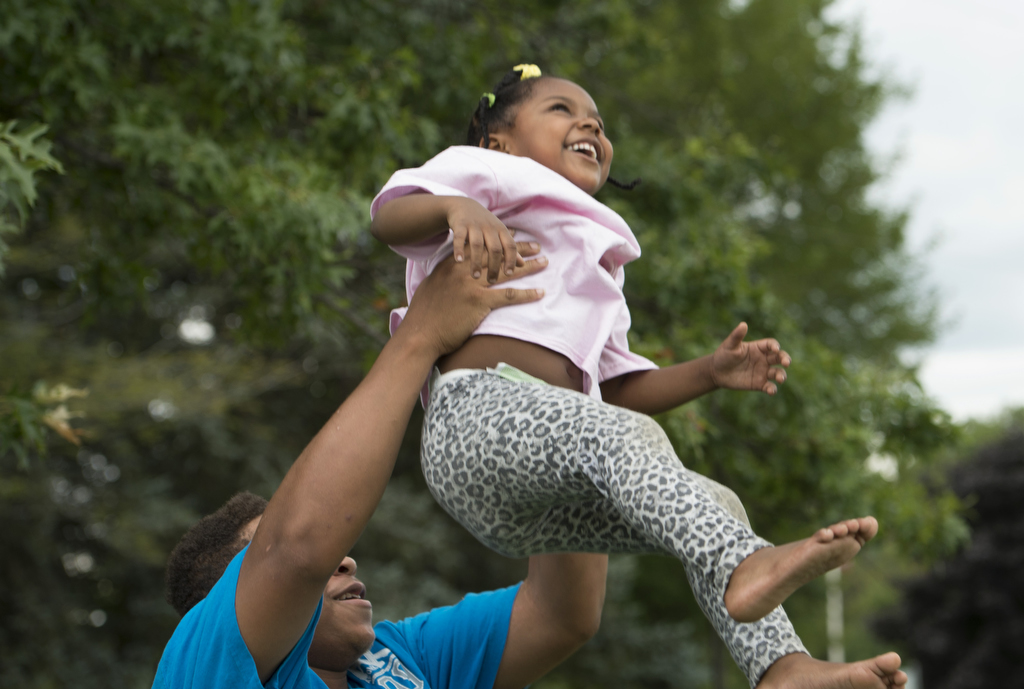
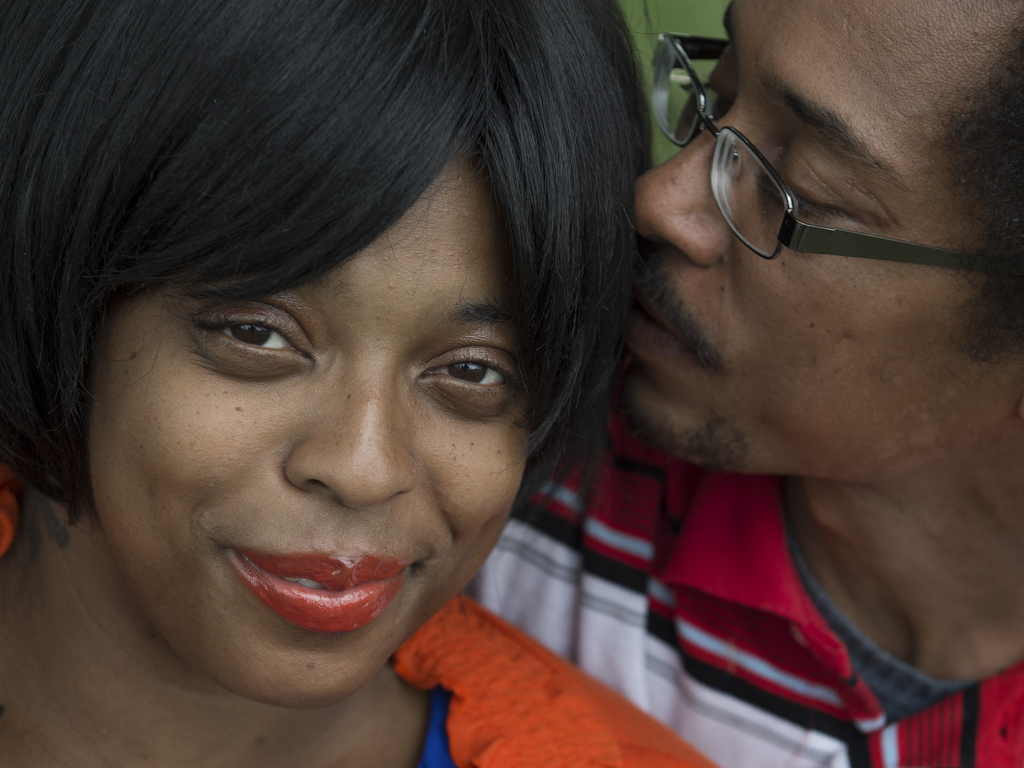
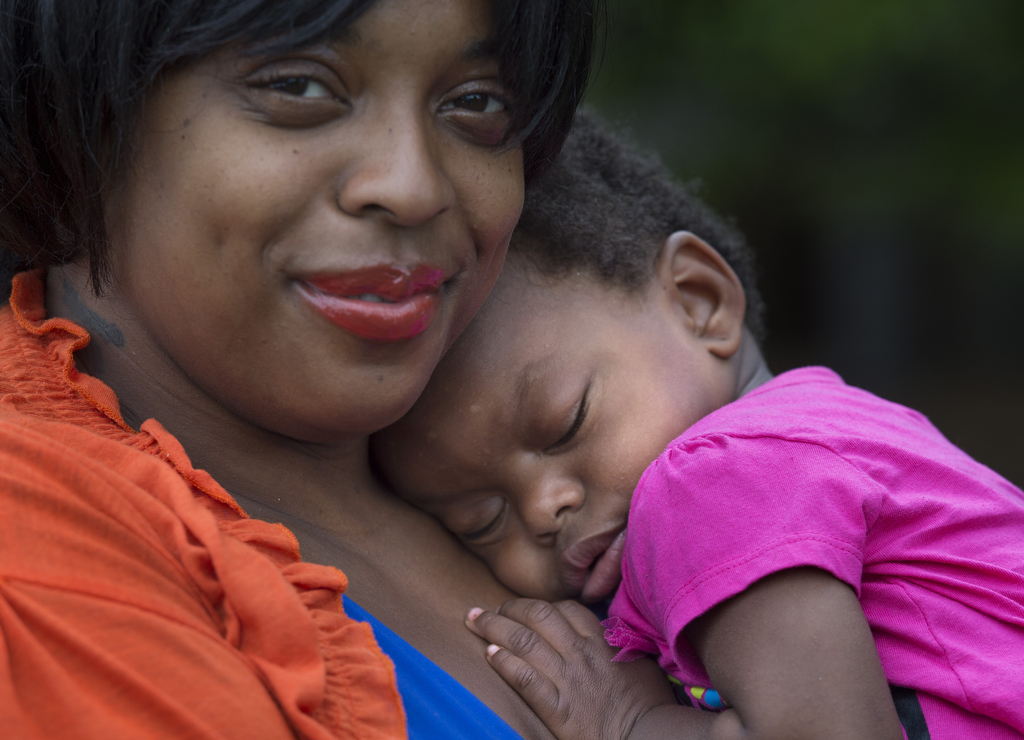
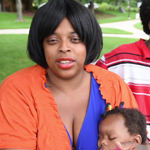

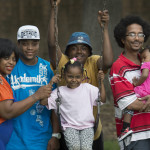

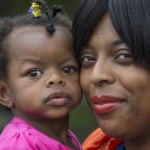

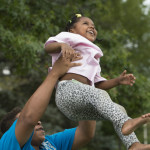



 /a>
/a>
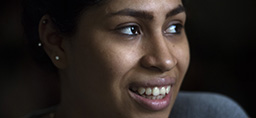 /a>
/a>
 /a>
/a>